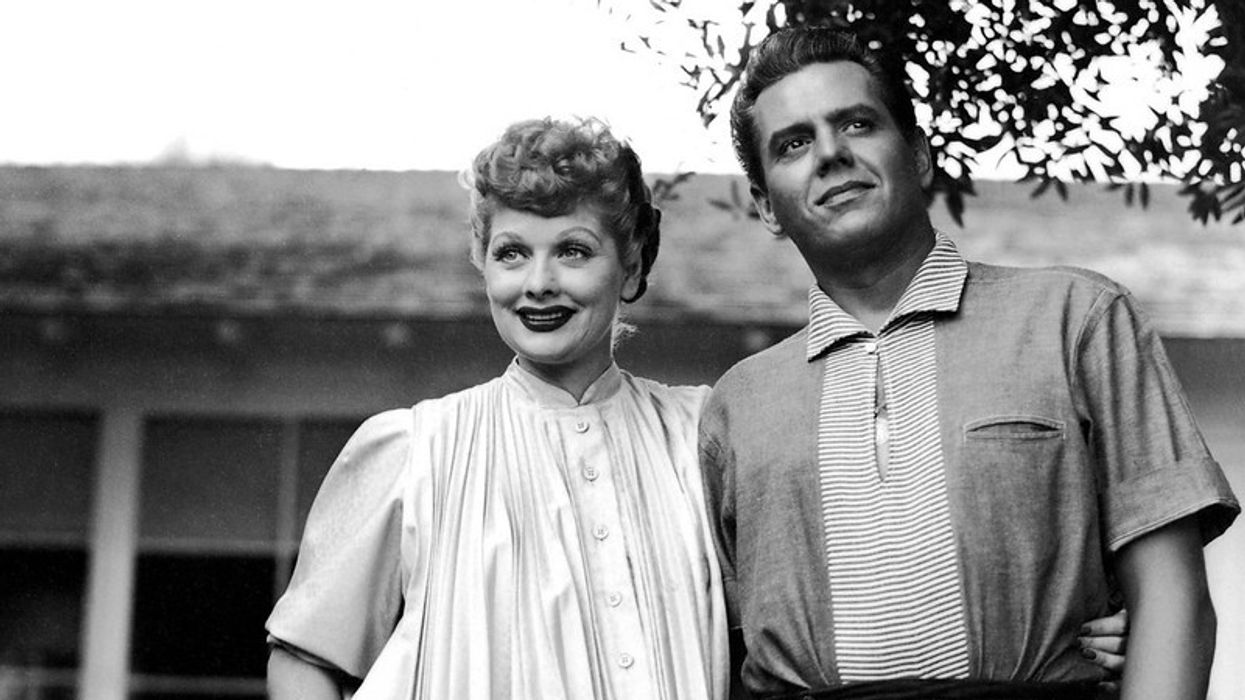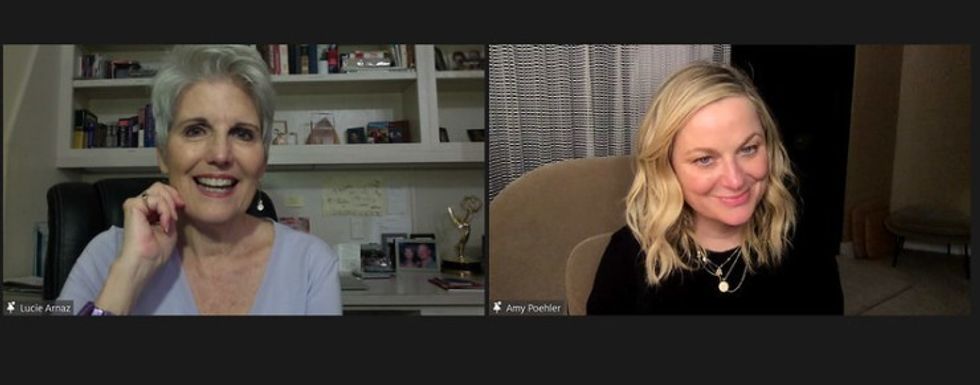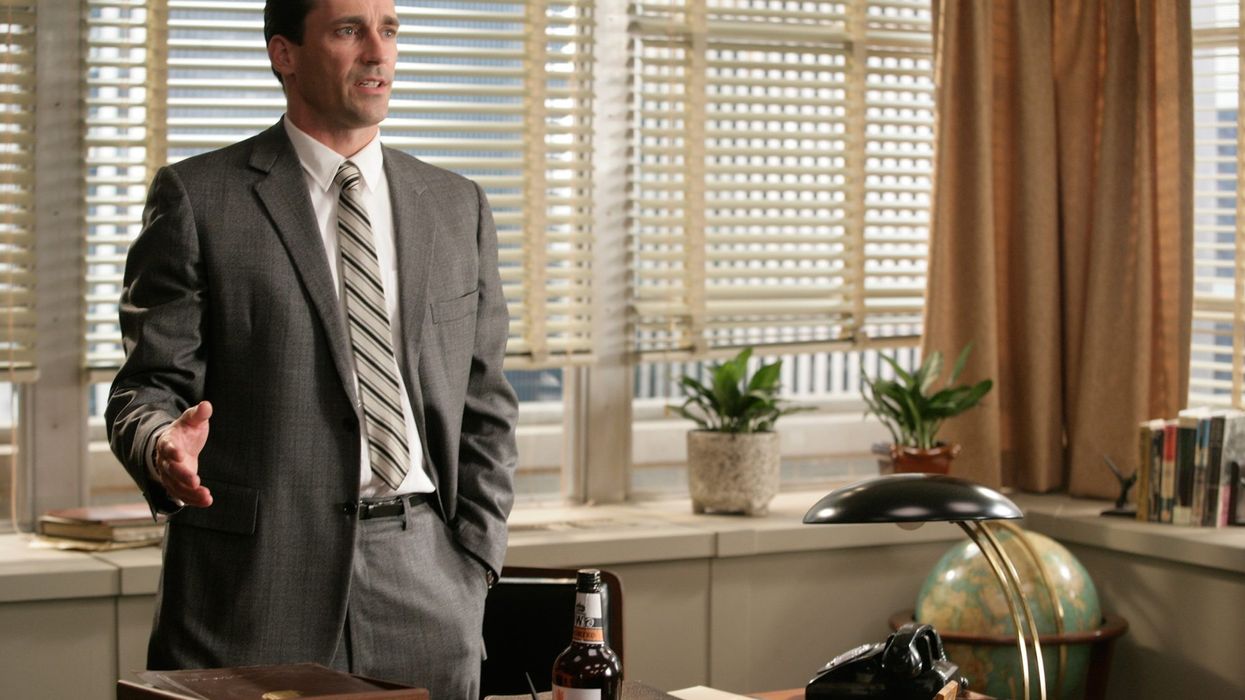What You Can Learn from Amy Poehler’s First Documentary
What happens when one of the greatest comedians of our time makes a documentary about one of the greatest comedians of all time?

From Upright Citizens Brigade to Saturday Night Live to Parks and Recreation, Amy Poehler stands as one of the greatest comedians of our generation.
In her documentary directing debut, Lucy and Desi, Poehler turns the lens to trailblazing comedians Lucille Ball and Desi Arnaz.
What can you learn from Poehler’s first time directing?
The film premiered at the 2022 Sundance Film Festival, and No Film School was there for the Q&A. Here are a few of the interesting lessons we learned about Poehler’s process on her first doc.
Look for a mentor to help find your path
How does an emerging storyteller find their way? How does an established storyteller pass down the insights they have learned? The answer is a mutually beneficial relationship of mentorship that can boost the creative power of both.
In Lucy and Desi, Poehler spotlights the impact Lucille Ball’s mentorship would have on the next generation of female comedians. Carol Burnett, a mentee of Ball, would eventually go on to mentor Amy Poehler.
“Anecdotally I had heard about it from Carol Burnett,” Poehler said in the Q&A. “She spoke about how Lucy and Desi had encouraged her. There’s often so much focus on how women are not helping each other or are competing against each other. In fact, I think there aren’t enough stories about ways women have been mentored by older women who have taken them under their wing.”
Why you should go big or go home
For Poehler, it was important to show just how influential Lucy and Desi were in the film industry.
See, when Ball and Arnaz first began pitching I Love Lucy as a TV show, CBS executives believed that an on-screen marriage between an “all-American” wife and Cuban husband would be too shocking to American audiences. To prove them wrong, Ball and Arnaz developed a vaudeville act that they performed themselves in front of live audiences in New York City. This live show would go on to be wildly successful with audiences—and change the executives' minds.
Ball and Arnaz would go on to found their own production company, Desilu Productions, which would produce groundbreaking shows such as Star Trek and Mission: Impossible.
“We had incredible women from the National Comedy Center and Lucy and Desi Museum to put into context how groundbreaking it was to have a woman and a Latin man in that time period being gatekeepers and being in the room,” Poehler said. “We just always needed to remind people of that because it was a very different time. The great Eduardo Machado, beautiful Cuban playwright who spoke so beautifully and personally about what it meant to see somebody like Desi on screen... How representation matters and how important it was for him as an immigrant new to the U.S. to see somebody like that on TV.”

Why it’s time for female filmmakers to tell "male" stories
Sitting in with Eva Longoria on a panel at the festival where they both discussed their documentary debuts, Poehler pointed out that it’s high time for women to tell stories beyond their gender.
“I do think that there’s a lot to be discovered with female filmmakers and the male experience,” said Poehler. “It’s something I think about a lot. We’ve had the pleasure now of opening up the gates to women making big decisions and helping and supporting other women and mentoring other women and telling female stories. And also we should open ourselves up to telling male stories from a female point of view.”
If you do it right, your films will never get old
How many sitcoms from the 1950s still ring true today like I Love Lucy?
Why is that? How do we, as filmmakers, strive to make that kind of work? Poehler didn’t exactly have the answer, but suggested it has something to do with how good art will mean something to you no matter what stage of life you’re in.
“I think like with any good art, you just keep running into it,” said Poehler. “Visiting it in different ways as you grow older and it changes like any good piece of art. When I was younger, I Love Lucy felt like it came with your TV. It came with television. When I really started to study comedy I was obsessed with Lucy and Desi both and loved the show. And now as an older woman, I really watch it in a very different way. There’s a tenderness that I find in it that I certainly wasn’t looking for in my 20s and 30s. I also really enjoy how the ensemble works together, having worked on a really satisfying ensemble on TV. I just keep seeing things over and over in the course of my life and I think that’s what good art does. It keeps refracting back all this stuff and it changes in just the right way. It’s so indicative of how beautiful that show was because it lives on still.”
Why you should direct a documentary
It will change your life. Poehler has directed multiple narrative films, but Lucy and Desi was her first foray into feature documentary directing. When asked by the audience whether she would direct another documentary, she was unwavering in her answer.
“Yes, I have high respect for documentarians. I love the form. It’s a very beautiful form. I can’t think of a better first feature to be part of than this one, with people I love and subject matter that changed my life.”












